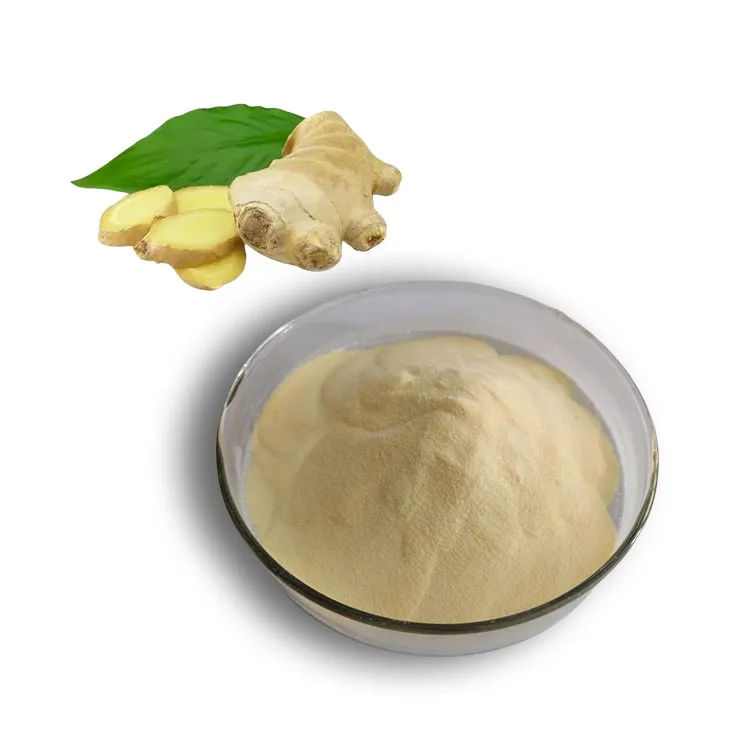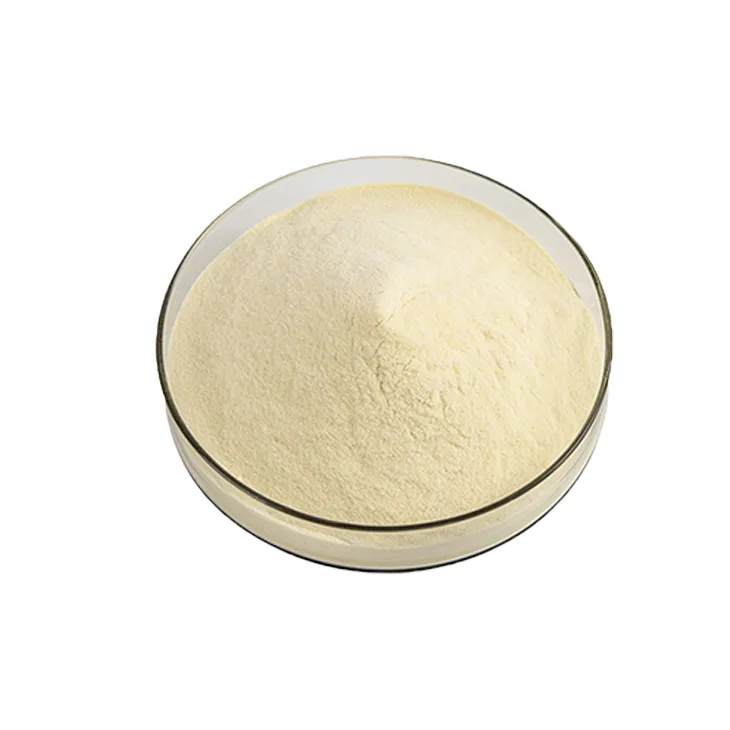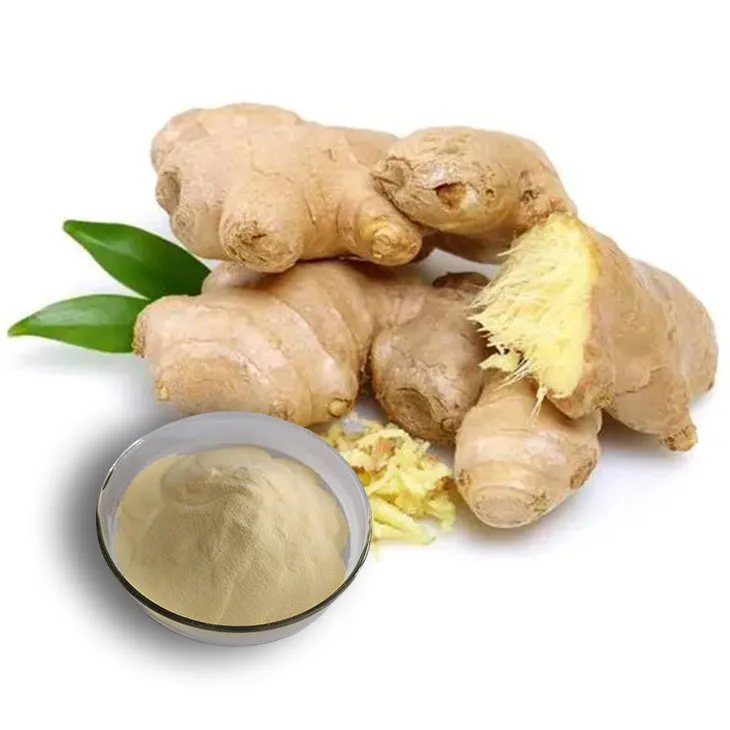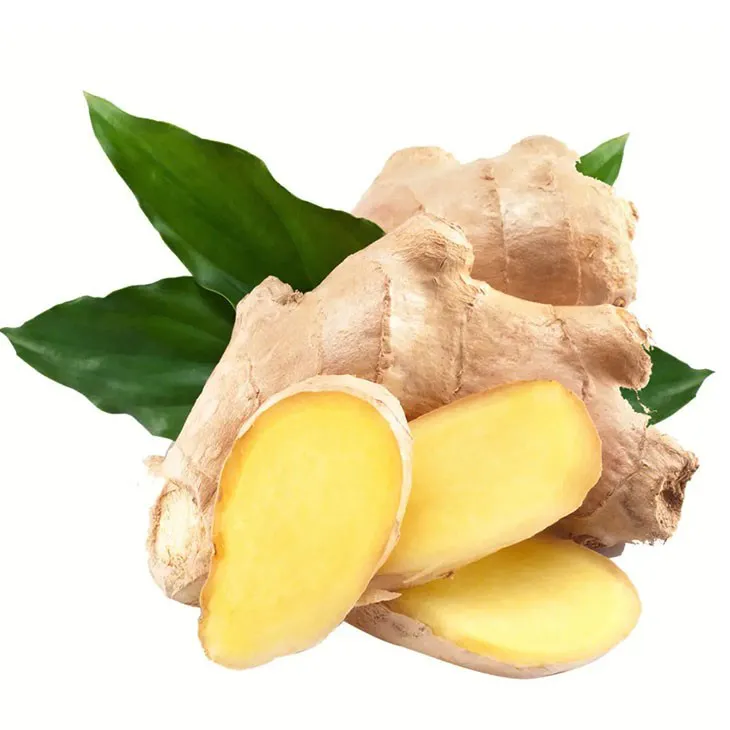- 0086-571-85302990
- sales@greenskybio.com
The flavor of mature ginger and natural ginger extract.
2024-11-12

1. Introduction
Ginger has been a staple in culinary and medicinal traditions across the globe for centuries. It is known for its unique and pungent flavor, as well as its numerous health benefits. In this article, we will delve into the differences between the flavor of mature ginger and natural Ginger Extract in terms of origin, sensory experience, and potential health benefits.

2. Origin
2.1 Mature Ginger
Mature ginger is the fully - grown rhizome of the ginger plant (Zingiber officinale). It is typically harvested when the plant has reached a certain level of maturity, which can take several months to a year, depending on the growing conditions. Ginger plants are native to Southeast Asia, particularly in countries like India, China, and Indonesia. These regions have warm and humid climates, which are ideal for ginger cultivation.
The growth of mature ginger involves a series of processes. It starts from planting the ginger rhizomes in well - drained soil, and with proper watering, sunlight, and care, the rhizomes gradually develop and expand underground. As the plant matures, the ginger rhizomes become larger and more fibrous, developing their characteristic spicy and aromatic properties.
2.2 Natural Ginger Extract
Natural Ginger Extract, on the other hand, is derived from mature ginger. It is obtained through various extraction methods. One common method is solvent extraction, where solvents such as ethanol or water are used to extract the active compounds from the ginger rhizomes. Another method is steam distillation, which is mainly used to extract the essential oils from ginger.
The production of ginger extract often takes place in specialized facilities. The raw materials, which are high - quality mature gingers, are carefully selected and processed. After extraction, the resulting extract is concentrated, containing a higher proportion of the active ingredients found in ginger compared to the raw ginger itself.

3. Sensory Experience
3.1 Taste
Mature Ginger: The taste of mature ginger is complex and multi - faceted. It has a distinct spiciness that is both warming and slightly biting. This spiciness is due to the presence of compounds such as gingerols. Along with the spiciness, there is also a certain earthy and slightly sweet undertone. When consumed raw, the spiciness can be quite intense, but when cooked, it mellows out and blends well with other flavors in a dish.
Natural Ginger Extract: Ginger extract has an intensified flavor compared to mature ginger. Since it is a concentrated form, the spiciness is more pronounced. The taste is more pure and direct, with a stronger presence of the characteristic ginger flavor compounds. It can be used in smaller quantities to achieve a similar level of spiciness as a larger amount of mature ginger. However, the earthy and sweet undertones may be somewhat diminished in the extract compared to the whole ginger.
3.2 Aroma
Mature Ginger: The aroma of mature ginger is fresh, spicy, and slightly citrusy. When you grate or cut fresh mature ginger, the scent is immediately released, filling the air with its invigorating fragrance. This aroma is a combination of various volatile compounds present in ginger, and it can enhance the overall olfactory experience when cooking or used in food preparation.
Natural Ginger Extract: The aroma of natural ginger extract is more concentrated and intense. It has a strong, pure ginger smell that is often used in perfumery and aromatherapy as well. In cooking, a small amount of ginger extract can add a powerful ginger aroma to a dish, but it may lack some of the freshness and complexity of the aroma of fresh mature ginger.
3.3 Texture
Mature Ginger: Mature ginger has a fibrous texture, especially in the outer layers. When sliced or grated, you can feel the fibers, which can add a certain chewiness or roughness to the mouthfeel, depending on how it is prepared. In cooked dishes, the texture may become softer, but still retains some of its fibrous nature.
Natural Ginger Extract: Ginger extract has no texture as it is in a liquid or semi - liquid form. This makes it more suitable for applications where a smooth texture is desired, such as in beverages or smoothies, or when added to sauces where the absence of fibrous bits is preferred.

4. Potential Health Benefits
4.1 Mature Ginger
Digestive Health: Mature ginger has long been used to aid digestion. It can help stimulate the production of digestive juices, including saliva, bile, and gastric juices. This, in turn, can improve the digestion of food, relieve indigestion, and reduce nausea. For example, chewing on a small piece of ginger after a heavy meal can help soothe the stomach.
Anti - Inflammatory Properties: Ginger contains compounds with anti - inflammatory effects, such as gingerols and shogaols. These compounds can help reduce inflammation in the body, which is beneficial for conditions like arthritis. Regular consumption of ginger in cooking or as a tea can contribute to a reduction in chronic inflammation.
Immune System Support: The nutrients in mature ginger, including vitamins and minerals, along with its antioxidant properties, can support the immune system. It can help the body fight off infections and diseases, especially during the cold and flu season.
4.2 Natural Ginger Extract
Concentration of Active Compounds: Since natural ginger extract is a concentrated form, it contains a higher amount of the active compounds like gingerols per unit volume. This means that it may potentially offer more potent health benefits in a smaller dose. For example, in the treatment of nausea, a small amount of ginger extract may be as effective as a larger amount of raw ginger.
Bioavailability: The extraction process may also enhance the bioavailability of the active compounds in ginger. This means that the body may be able to absorb and utilize these compounds more efficiently compared to when consuming whole ginger. However, more research is needed to fully understand the differences in bioavailability between ginger extract and whole ginger.
Medicinal Applications: Ginger extract is often used in the production of dietary supplements and herbal remedies. It can be formulated into capsules, tablets, or tinctures for easy consumption. In the field of natural medicine, ginger extract is being studied for its potential applications in treating various health conditions, such as menstrual pain, migraines, and high blood pressure.

5. Culinary Applications
Mature Ginger: Mature ginger is a versatile ingredient in the kitchen. It can be used in both sweet and savory dishes. In savory dishes, it is often used in stir - fries, curries, and soups. For example, in a Thai green curry, ginger adds depth of flavor and a spicy kick. In sweet dishes, ginger can be used in gingerbread, cookies, or even in fruit compotes to add a unique flavor dimension.
Natural Ginger Extract: Ginger extract is more commonly used in the food and beverage industry for its convenience and concentrated flavor. It is often added to soft drinks, energy drinks, and flavored waters to give a ginger - like taste. In the confectionery industry, it can be used to flavor candies and chewing gums. It is also used in some high - end or specialty food products where a precise and intense ginger flavor is desired.
6. Conclusion
In conclusion, both mature ginger and natural ginger extract offer unique qualities in terms of origin, sensory experience, and potential health benefits. Mature ginger provides a more complex and textured sensory experience, with its fibrous texture, multi - faceted taste, and fresh aroma. It has been a traditional ingredient in cooking and medicine for centuries. On the other hand, natural ginger extract offers a concentrated form of the ginger flavor, with more intense taste and aroma, and potentially more potent health benefits in a smaller dose. Understanding the differences between these two forms of ginger can help consumers and food and health professionals make more informed decisions in their use of ginger in various applications.
FAQ:
What is the origin of mature ginger flavor?
Mature ginger flavor comes directly from the mature ginger root. Ginger is a rhizome that grows underground. It is cultivated in many regions around the world with suitable climates, such as in Asia, Africa, and the Americas. The flavor develops as the ginger matures over time, through the accumulation of various chemical compounds within the root.
What is the origin of natural ginger extract?
Natural ginger extract is derived from mature ginger. It is obtained through a process of extraction, usually involving solvents or mechanical means. The ginger root is processed to isolate and concentrate the active compounds present in ginger, resulting in the creation of the extract. The origin of the extract is thus the same as that of mature ginger, but it has been processed to a more concentrated form.
How do they differ in sensory experience?
Mature ginger has a complex flavor profile. It offers a warm, spicy, and slightly pungent taste with earthy undertones. When consumed, the flavor unfolds gradually. On the other hand, natural ginger extract has a more concentrated flavor. It is intensely spicy and pungent, often with a more immediate and pronounced impact on the taste buds. The extract may lack some of the subtler, earthy notes present in whole mature ginger.
What are the potential health benefits of mature ginger?
Mature ginger has several potential health benefits. It may help with digestion by stimulating the production of digestive enzymes. It also has anti - inflammatory properties, which can be beneficial for reducing muscle soreness and joint pain. Additionally, it may help in relieving nausea, whether it is due to motion sickness, pregnancy, or other causes.
What are the potential health benefits of natural ginger extract?
Natural ginger extract contains many of the same active compounds as mature ginger, so it shares similar health benefits. Due to its concentrated nature, it may be more effective in smaller doses for some conditions. For example, it can be a potent anti - inflammatory agent, potentially helping with chronic inflammatory diseases. It may also be beneficial for improving circulation and reducing blood pressure, although more research is needed in these areas.
Related literature
- The Chemistry and Bioactivity of Ginger"
- "Ginger: A Spice with Multiple Health Benefits"
- "Comparative Analysis of Ginger and Its Extracts: Flavor and Functional Properties"
- ▶ Hesperidin
- ▶ citrus bioflavonoids
- ▶ plant extract
- ▶ lycopene
- ▶ Diosmin
- ▶ Grape seed extract
- ▶ Sea buckthorn Juice Powder
- ▶ Beetroot powder
- ▶ Hops Extract
- ▶ Artichoke Extract
- ▶ Reishi mushroom extract
- ▶ Astaxanthin
- ▶ Green Tea Extract
- ▶ Curcumin Extract
- ▶ Horse Chestnut Extract
- ▶ Other Problems
- ▶ Boswellia Serrata Extract
- ▶ Resveratrol Extract
- ▶ Marigold Extract
- ▶ Grape Leaf Extract
- ▶ blog3
- ▶ Aminolevulinic acid
- ▶ Cranberry Extract
- ▶ Red Yeast Rice
- ▶ Red Wine Extract
-
Quercetin
2024-11-12
-
Berberis aristata Extract
2024-11-12
-
Fenugreek Extract Powder
2024-11-12
-
Eucommia Ulmoides Extract
2024-11-12
-
White Peony Extract
2024-11-12
-
Clove Powder
2024-11-12
-
Alfalfa Meal
2024-11-12
-
Tongkat Ali Extract Powder
2024-11-12
-
Phellodendron Extract
2024-11-12
-
Fig Extract
2024-11-12





















